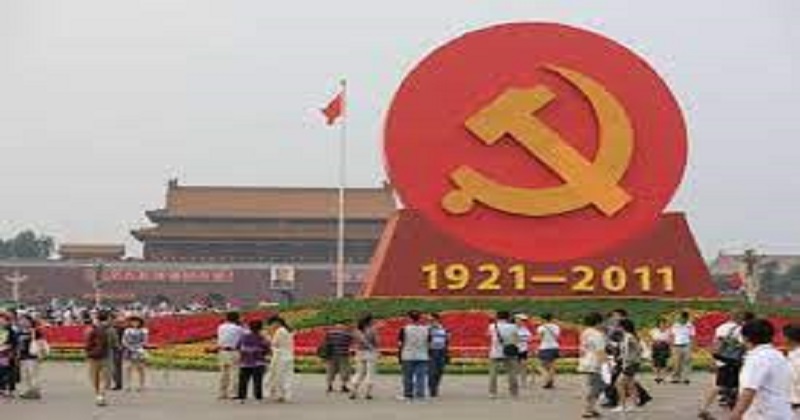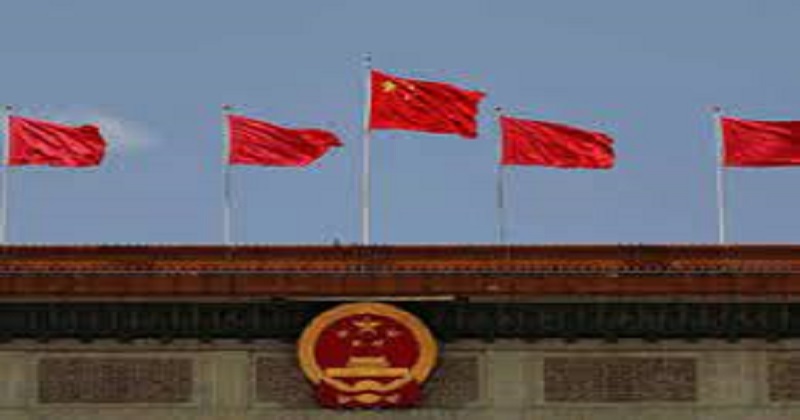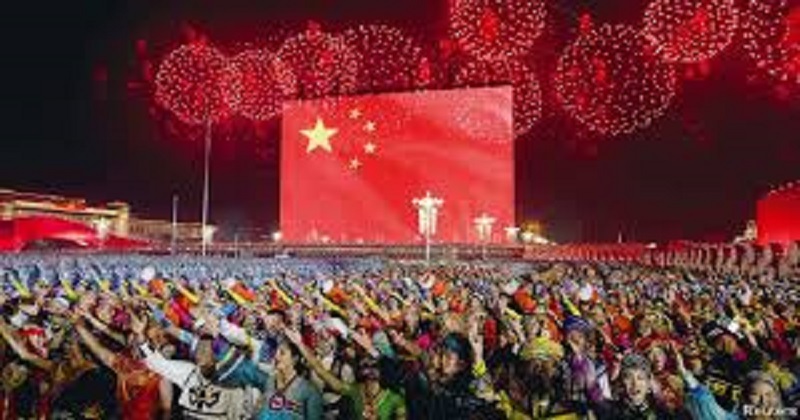
China’s Communist Party (CPC) will be celebrating its centenary with a series of special events on July 1. With the CPC’s significant contribution to shaping the communist nation, China hopes to guide the future of the world in the next decade and beyond. The future trajectory of the CPC is usually assessed in three ways: its transition to democracy, its fragility, which may result in chaos, and its authoritarian resilience. Over many years, the CPC altered its ideology and changed how it operated, resulting in the nation becoming as powerful as it is today.

Changes in Composition:
CPC, the longest-surviving communist party, has not only done well despite all projections of its destruction, but has also evolved to meet the changing needs of the times. The party today is vastly different from the less than 20 members, who came together in Shanghai in July 1921 to form it. CPC membership is 91.8 million strong, with an annual growth rate of 20% since 2008, when two events led China to see itself as a global power; the Beijing Olympics and the global economic slowdown. The rise of the party’s membership ranks isn’t attributable to older, more jaded or outmoded members, but to younger cohorts (under 35 years of age).
To begin with, that may be considered a success. Among the reasons for its success are how it does this and what mistakes it avoids that similar organizations have made. CPC differs structurally as well. Among party members, about 51 percent are graduates, more than 35 percent of peasants and workers. Thus, the CPC today is more urban and middle class than ever before. Yet, it also mirrors the lifestyles of China’s middle class, which mostly resides in the nation’s over 200 largest cities.
Organization and ideology
Organizing and ideology have been the two key factors that have kept the mammoth party together for the longest time period. The party works on the basis of principal contradictions or the central problem of Chinese society. The party recognized in 1981 that the means of production were inadequate for meeting people’s demands. This led to what is now known as the ‘socialist market economy’ in China, which gained momentum after Deng Xiaoping’s famous southern tour in 1992. At the same time, it also led to income and regional inequality, environmental damage, corruption, protests across provinces, and other challenges. The CPC held its 19th Congress in 2017 and a revision is announced, which was reported to be ‘between unbalanced, inadequate development and the people’s ever-growing need for a better future’. Quality-of-life issues, an increase in domestic consumption, and a rise in wages are some of the things expected.
As an organization, the CCP has more than 5,000 subbranches. In the last decade, the Central Commission on Discipline Inspection (CCDI) and United Front Work Department (UFWD) have emerged as the most important parties’ organisations. For several years, Wang Qishan, a close ally of Xi, headed the CCDI, which handles corruption investigations. In a variety of ways, the UFWD plays a significant underground role in monitoring ideology and social thinking on issues such as politics, society, religion, and national stability. Additionally, the party school studies the situation at home and abroad and creates documents that are available to the leadership. Party school thinking, for instance, would have been the source of the new principal contradiction.
Omnipresence is an important feature of the CPC. Everywhere, from factories, to the military, to social organizations, to private enterprises, to academic institutions, and all other organisations that matter. By now, the party has committees in more than 70 percent of China’s private organisations.
Power and legitimacy
There has always been scrutiny of the party’s relationship with the people, its legitimacy and the social contract under which it achieves that legitimacy. The CPC is not a monolith as the media portrays it. In the party, numerous internal discussions take place on economic planning, the environment, quality of life, and regional inequalities. The CPC does not like public criticism of the leadership.
From Tiananmen 1989, the party learned that unity is essential to its centrality. As a result, it prefers to conduct debates internally and present a singular external perspective. This is why it preferred to weed out someone like Bo Xilai, the party secretary in Chongqing who was dismissed and arrested in 2012 on charges of corruption and abuse of power. Perhaps his corrupt and cruel ways of ruling could have been overlooked, but not his campaign to reach the pinnacle of power.
The rise of Xi Jinping and anti-corruption
Corrupt practices are considered an existential threat by the CPC. After Wen Jiabao made a speech stating that, Xi Jinping launched an anti-corruption campaign in 2013. Also, it led to the reduction of the relative power of other factions, paving the way for Xi Jinping’s eventual rise to prominence. Since Xi took over the leadership of the whole country, he has centralized power and reduced the authority of the premier Li Keqiang, as in the economy. Xi became the chairman of at least 16 key commissions and committees, earning the moniker ‘chairman of everything’.
It is not enough for Xi to be considered a leader of the fifth generation. He also believes it is his duty to leave a lasting impact on the party’s future. With the first 30 years of the PRC under Mao and the next 30 under Deng Xiaoping, Xi has committed himself to affecting Chinese politics and policies in all areas within 10 years of the country’s centennial. Therefore, the million-dollar question is whether Xi will remain in power beyond 2024, a prospect that looks more likely by the day. The next generation of leaders like Hu Chunhua and Chen Min’er may eventually lose out if that occurs.

The dark side of power
It’s no secret that the CPC has several dark sides. In its minority provinces, it has abandoned any pretense of the liberal order and rules in a brutal manner. As the state has extended surveillance even to the digital domain, Xinjiang’s incidents are well known. Minorities are required to install state-approved apps, and their movements are actually tracked. There is a Ramzan fasting ban and there is a policy that suppresses the Uyghur language. It is beyond dispute that ‘re-education camps’ or mass jails are a reality across Xinjiang, and exiled Uighurs claim that their families have disappeared as a result of speaking on these issues abroad.
There are indications that these policies could come to Tibet based on recent news in the Chinese media. In the aftermath of 9/11, it was easier for China to frame the Xinjiang dispute. In contrast, in Tibet, the tussle over the succession issue and the holiness of Dalai Lama’s obsession is intensifying.
Life under the surveillance state hasn’t been easy for other Han Chinese as well. It has been reported that party officials have knocked on doors to check the well-being of individuals if they had searched for terms such as the Tiananmen massacre or corruption related to the central committee. Several student leaders, outspoken artists, economists, lawyers, women’s right activists, and businessmen have had their wings clipped recently. In 1997, China broke its promise to Hong Kong as well.
The Party, as it begins its celebrations, is also controlling all voices that do not agree with its version of the truth. This kind of behavior was called ‘historical nihilism’ by Xi Jinping. Recently, two million online posts were removed due to a ‘harmful’ discussion of history. Cybersecurity Administration of China (CAC) monitors the internet for such posts. Historical nihilism is characterized by attacks on the party leadership, slander of heroes, and vilification of Chinese culture.
Read more: ‘Legally insufficient’: US judge dismisses lawsuits against Facebook
The world faces a contradiction about China as the party turns 100 and celebrates its transformation of China into a moderately prosperous society. China today is more powerful, but also more insecure. Insecurity drives its actions on the borders, in the South China Sea, in the trade war and in the wolf warrior diplomacy. In addition to wanting recognition for its power and status, China has behaved badly recently in Bangladesh, dictating which choices were good or bad for the nation. Hyper-nationalist sentiments may work for the party domestically, but are bound to cause problems abroad as well.

Post Your Comments